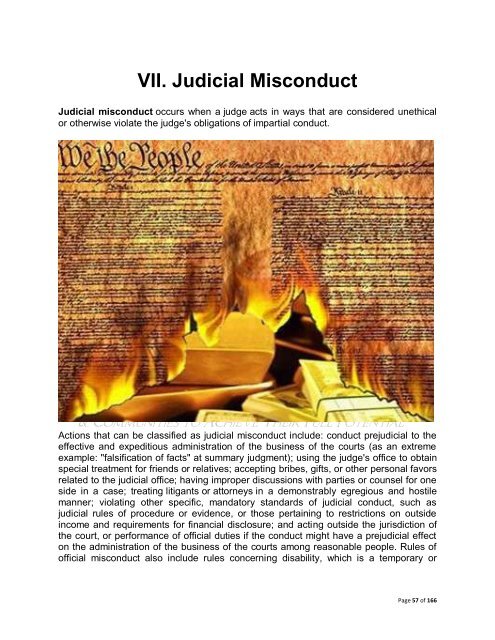Create successful ePaper yourself
Turn your PDF publications into a flip-book with our unique Google optimized e-Paper software.
VII. <strong>Judicial</strong> Misconduct<br />
<strong>Judicial</strong> misconduct occurs when a judge acts in ways that are considered unethical<br />
or otherwise violate the judge's obligations of impartial conduct.<br />
Actions that can be classified as judicial misconduct include: conduct prejudicial to the<br />
effective and expeditious administration of the business of the courts (as an extreme<br />
example: "falsification of facts" at summary judgment); using the judge's office to obtain<br />
special treatment for friends or relatives; accepting bribes, gifts, or other personal favors<br />
related to the judicial office; having improper discussions with parties or counsel for one<br />
side in a case; treating litigants or attorneys in a demonstrably egregious and hostile<br />
manner; violating other specific, mandatory standards of judicial conduct, such as<br />
judicial rules of procedure or evidence, or those pertaining to restrictions on outside<br />
income and requirements for financial disclosure; and acting outside the jurisdiction of<br />
the court, or performance of official duties if the conduct might have a prejudicial effect<br />
on the administration of the business of the courts among reasonable people. Rules of<br />
official misconduct also include rules concerning disability, which is a temporary or<br />
Page 57 of 166

















